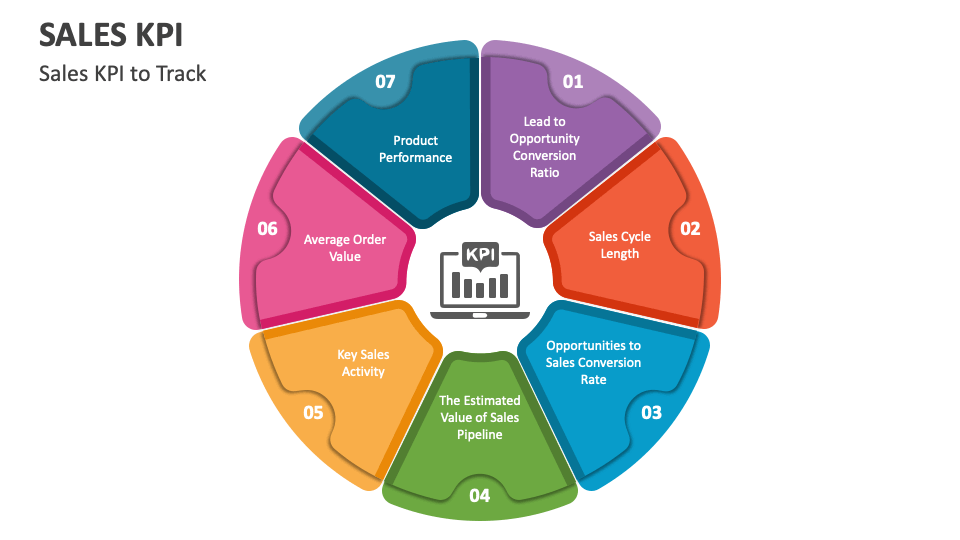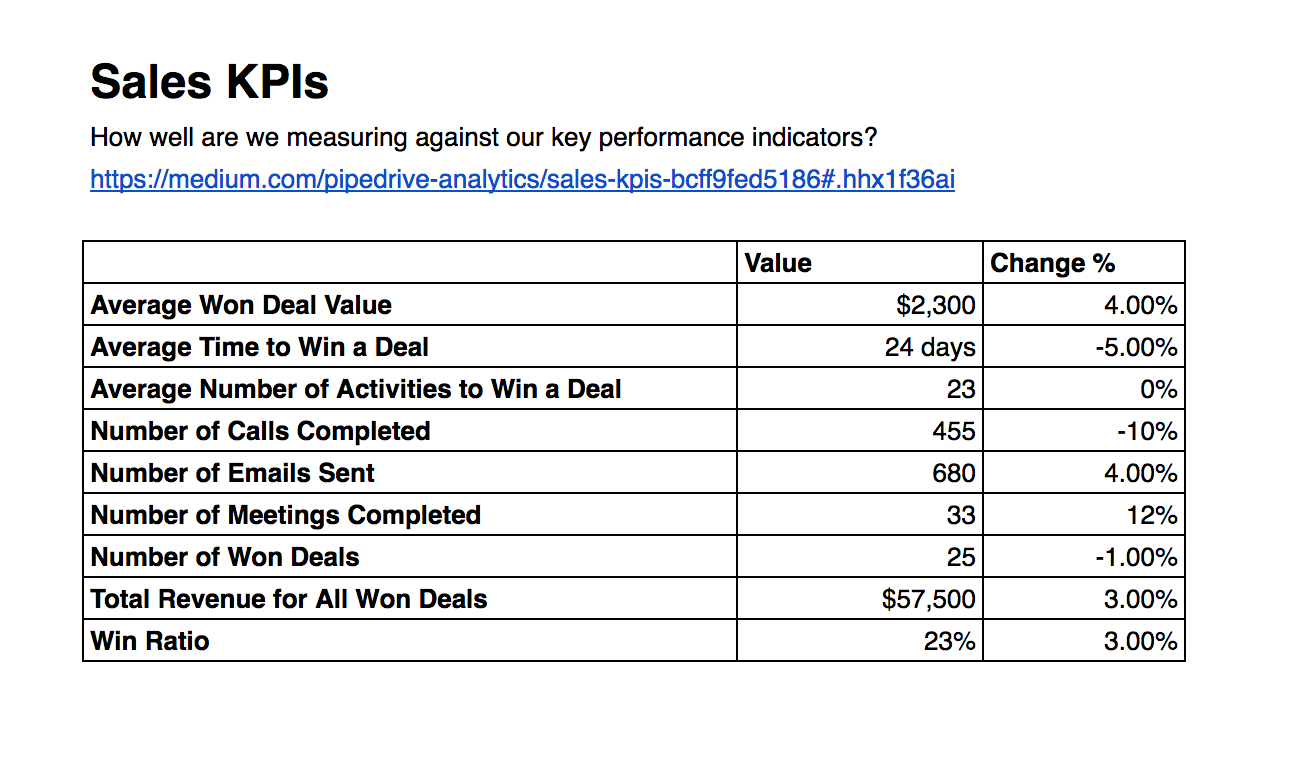What Is KPI In Sales? Understanding Key Performance Indicators For Sales Teams
In today’s competitive business landscape, understanding what KPI in sales means is crucial for organizations aiming to thrive. Key Performance Indicators (KPIs) serve as the backbone of data-driven decision-making, enabling sales teams to measure their progress and optimize strategies. Whether you're a seasoned sales professional or just starting out, grasping the concept of KPIs is essential for success.
KPIs provide a clear, measurable way to evaluate performance and align objectives with organizational goals. By tracking these metrics, businesses can identify strengths, weaknesses, and opportunities for growth. This article will delve into the importance of KPIs in sales, how they work, and how you can implement them effectively in your sales strategy.
Whether you're looking to boost revenue, improve customer relationships, or enhance team productivity, KPIs play a pivotal role. Let's explore the world of KPIs in sales and discover how they can transform your business.
- Snow Weather App Your Ultimate Companion For Winter Adventures
- Coronation Street Lossless A Deep Dive Into The Iconic Soap Operas Uncompressed Legacy
Table of Contents
- What is KPI in Sales?
- Importance of KPI in Sales
- Common Sales KPIs
- How to Set Effective Sales KPIs
- Measuring Sales KPIs
- Tools for Tracking Sales KPIs
- Examples of Sales KPI Implementation
- Challenges in Using Sales KPIs
- Best Practices for Sales KPIs
- Conclusion
What is KPI in Sales?
A Key Performance Indicator (KPI) in sales refers to a measurable value that demonstrates how effectively a company achieves its sales objectives. These indicators are essential for tracking progress and making informed decisions. KPIs in sales help businesses evaluate the performance of their sales teams, identify areas for improvement, and align strategies with broader organizational goals.
Why Focus on KPIs?
KPIs provide a clear framework for measuring success and ensuring accountability. By focusing on specific metrics, sales teams can prioritize efforts, allocate resources efficiently, and drive results. Whether it's tracking revenue growth, lead conversion rates, or customer retention, KPIs offer valuable insights that guide decision-making.
- Sad News About Rod Stewart A Deep Dive Into The Legends Life And Trials
- Jonathan Goodwin Amanda Abbington The Dynamic Duo Thats Got Everyone Talking
For example, a common KPI in sales is the "Sales Growth Rate," which measures the percentage increase in sales over a specific period. This metric helps businesses understand their growth trajectory and identify factors contributing to success or failure.
Importance of KPI in Sales
KPIs are vital for sales teams as they provide a structured approach to performance evaluation. They help businesses:
- Set realistic and achievable goals.
- Monitor progress and adjust strategies accordingly.
- Improve team productivity and efficiency.
- Enhance customer relationships and satisfaction.
By leveraging KPIs, organizations can ensure alignment between individual performance and overall business objectives. This alignment fosters a culture of accountability and continuous improvement, ultimately driving success.
Impact on Business Success
Research from McKinsey & Company shows that companies using data-driven KPIs outperform their competitors by up to 20%. This highlights the significance of incorporating KPIs into sales strategies to achieve sustainable growth.
Common Sales KPIs
There are several KPIs commonly used in sales to measure performance. Here are some of the most important ones:
1. Revenue Growth Rate
This KPI measures the percentage increase in sales revenue over a specific period. It provides insight into the overall financial health of the business.
2. Lead Conversion Rate
The lead conversion rate tracks the percentage of leads that convert into paying customers. A higher conversion rate indicates effective sales strategies and strong customer engagement.
3. Customer Acquisition Cost (CAC)
CAC measures the cost associated with acquiring a new customer. Lowering CAC while maintaining or improving quality is a key goal for many businesses.
4. Sales Cycle Length
This KPI evaluates the average time it takes to close a sale. Shorter sales cycles often correlate with higher efficiency and better resource utilization.
How to Set Effective Sales KPIs
Setting effective KPIs involves a strategic approach. Here are some steps to guide you:
1. Align with Business Goals
Ensure your KPIs align with overarching business objectives. For example, if your goal is to increase market share, focus on KPIs like revenue growth and customer acquisition.
2. Choose Relevant Metrics
Select KPIs that directly impact your sales performance. Avoid overwhelming your team with too many metrics; focus on the most critical ones.
3. Set SMART Goals
Make sure your KPIs are Specific, Measurable, Achievable, Relevant, and Time-bound. This ensures clarity and accountability.
Measuring Sales KPIs
Measuring KPIs effectively requires a systematic approach. Here are some tips:
- Use data analytics tools to collect and analyze data.
- Regularly review KPI performance to identify trends and areas for improvement.
- Involve sales teams in the measurement process to foster ownership and engagement.
Importance of Data Accuracy
Accurate data is crucial for reliable KPI measurement. Inaccurate or incomplete data can lead to misguided decisions and hinder progress. Regular audits and quality checks are essential to maintain data integrity.
Tools for Tracking Sales KPIs
Several tools are available to help businesses track and analyze KPIs. Some popular options include:
1. Salesforce
Salesforce is a comprehensive CRM platform that offers robust KPI tracking capabilities. It allows businesses to monitor sales performance in real-time and generate detailed reports.
2. HubSpot
HubSpot provides a suite of tools for managing sales, marketing, and customer service. Its analytics features make it easy to track KPIs and gain valuable insights.
3. Google Analytics
While primarily used for website analytics, Google Analytics can also track sales-related KPIs, such as conversion rates and user behavior.
Examples of Sales KPI Implementation
Let's look at a few examples of how businesses have successfully implemented KPIs in sales:
Case Study: Tech Company A
Tech Company A implemented KPIs to improve its lead conversion rate. By focusing on metrics like lead quality and follow-up time, the company increased its conversion rate by 15% within six months.
Case Study: Retail Chain B
Retail Chain B used KPIs to optimize its sales cycle length. By streamlining processes and enhancing customer communication, the chain reduced its average sales cycle by 20%, leading to increased revenue.
Challenges in Using Sales KPIs
While KPIs offer numerous benefits, there are challenges to consider:
- Over-reliance on certain metrics can lead to tunnel vision.
- Data collection and analysis can be time-consuming and resource-intensive.
- Ensuring buy-in from sales teams is crucial for successful implementation.
Overcoming Challenges
To overcome these challenges, businesses should:
- Regularly review and update KPIs to ensure relevance.
- Invest in efficient data analytics tools.
- Communicate the importance of KPIs to all stakeholders.
Best Practices for Sales KPIs
Adopting best practices can enhance the effectiveness of KPIs in sales:
1. Focus on Key Metrics
Identify and prioritize the most critical KPIs for your business. Avoid overloading your team with unnecessary metrics.
2. Foster a Data-Driven Culture
Encourage a culture of data-driven decision-making across the organization. This ensures alignment and consistency in KPI implementation.
3. Provide Training and Support
Offer training and resources to help sales teams understand and utilize KPIs effectively. This fosters confidence and competence in tracking and analyzing metrics.
Conclusion
Understanding what KPI in sales means is essential for businesses aiming to achieve success in today's competitive market. By leveraging KPIs, organizations can measure performance, identify opportunities for growth, and drive strategic decision-making.
To recap:
- KPIs provide measurable insights into sales performance.
- Effective KPI implementation requires alignment with business goals and a focus on relevant metrics.
- Tools like Salesforce, HubSpot, and Google Analytics can enhance KPI tracking and analysis.
We encourage you to take action by implementing KPIs in your sales strategy. Share your thoughts and experiences in the comments below, and don't forget to explore other articles on our site for more insights into sales and marketing strategies.



Detail Author:
- Name : Mallory O'Hara
- Username : toy.eva
- Email : obeahan@gmail.com
- Birthdate : 1976-04-26
- Address : 56604 Pouros Fall West Kayley, MA 12233-2233
- Phone : 618-463-5793
- Company : Mosciski-Mohr
- Job : Battery Repairer
- Bio : Omnis maiores recusandae fuga eos officia reprehenderit. Sapiente sint doloremque dicta aliquam.
Socials
facebook:
- url : https://facebook.com/monroe.heaney
- username : monroe.heaney
- bio : Quia eaque ut quisquam asperiores.
- followers : 3447
- following : 2728
tiktok:
- url : https://tiktok.com/@mheaney
- username : mheaney
- bio : Est id quos soluta rerum. Hic et incidunt sint corporis.
- followers : 3933
- following : 490